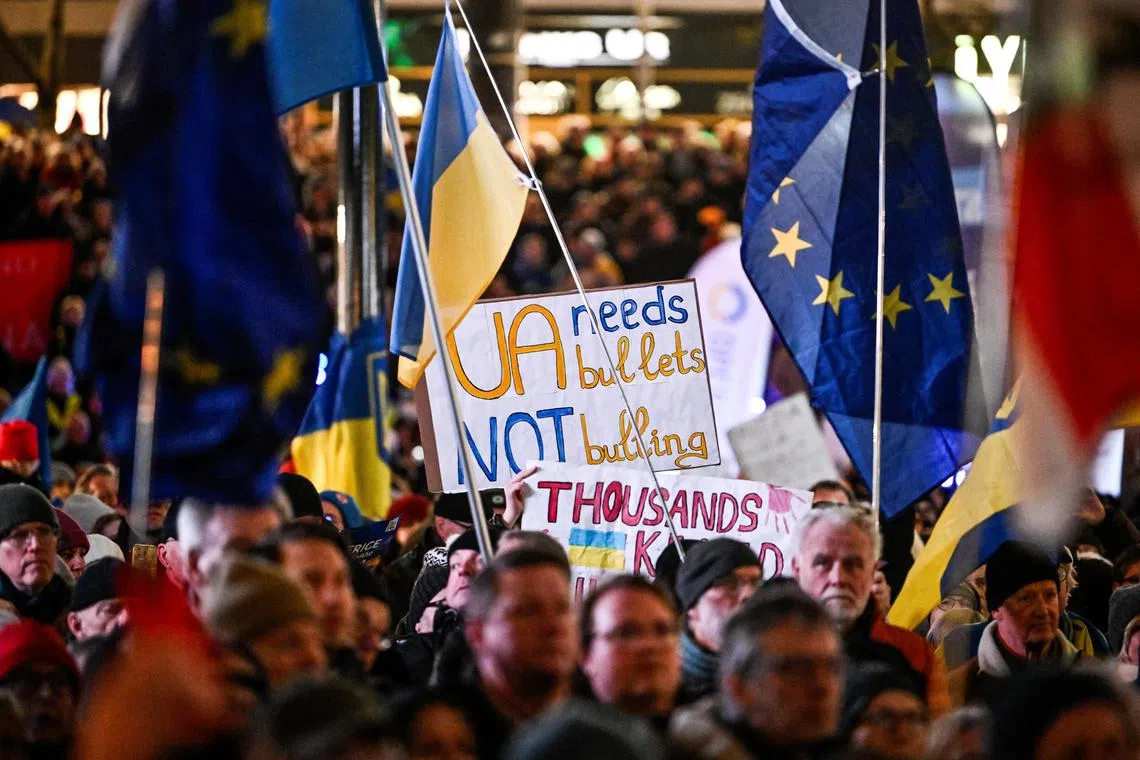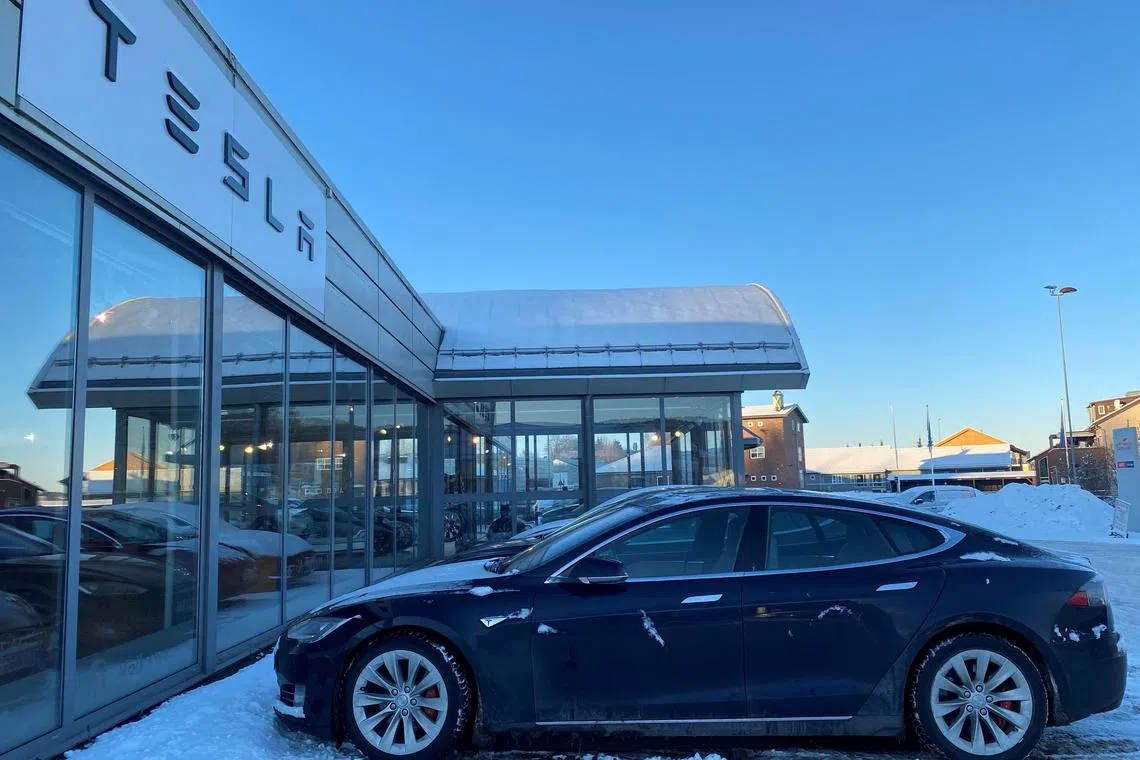Scandinavians boycott US goods over Trump’s Ukraine U-turn
Sign up now: Get ST's newsletters delivered to your inbox

People taking part in a pro-Ukraine rally in Sweden on the third anniversary of Russia’s invasion on Feb 24.
PHOTO: REUTERS
STOCKHOLM – Scandinavian consumers outraged by US President Donald Trump’s Ukraine policy turnaround have begun boycotting goods and services “Made in USA” but are discovering just how difficult that can be at times.
Several groups have emerged in recent days on social networks in Denmark and Sweden aimed at helping fellow consumers make alternative choices. The Danish group “Boykot varer fra USA” and the Swedish group “Bojkotta varor fran USA” each had some 63,000 members on March 6.
“It is, of course, very difficult to boycott US products consistently, quickly and long-term, but if you want to do something and don’t know where to begin, this could provide a little help,” Ms Agneta Gottberg Henriksson, 58, wrote on the Swedish Facebook group, attaching a list of US products that has been circulating online.
The list features a column on the left listing well-known American brands, while a column on the right suggests Swedish or European alternative options.
Craving KFC? Go for “grilled chicken at your neighbourhood restaurant” instead.
But many of the other suggestions are problematic.
For instance, members are encouraged to opt for a French Peugeot instead of Tesla. However, Peugeot’s owner Stellantis also owns several American brands including Jeep.
Shoppers pining for a new pair of Nike sneakers are told to swop them out for a pair of Salomons, owned by Finnish group Amer Sports. But that group is also listed in New York.
Boycotting omnipresent US products can be tricky.
For the past week, Ms Gottberg Henriksson, a project manager from the southern Swedish region of Skane, has tried to avoid spending any money on American goods.
She admits it is not always easy, especially when it comes to tech goods and online services.
“It’s a little ironic because this group (that launched the boycott) is mainly active on Facebook. We would really like to boycott it.” But finding an alternative social network to the US-owned group is almost impossible, she told AFP.
Swedish public support for Ukraine following Russia’s invasion
“What is happening now in the United States – turning its back on Ukraine and going back on all its promises – that was the last straw,” explained Ms Gottberg Henriksson.
She is even willing to lose money on her conviction.
Reviewing her investments, she realised that about 60 per cent were placed on the US market. She decided to sell them all on March 4, the day huge US tariffs kicked in and sent global stocks tumbling.
“You have to accept it. If you really mean it, you really mean it,” she said.
European stars
In Denmark, the owner of several supermarket chains has decided to mark European products with a star, to help customers make their choice.
The initiative is in response to strong demand from consumers, the head of the Salling Group retailer, Mr Anders Hagh, wrote on LinkedIn.
Swede Reidar Svedahl, 71, told AFP he had decided to boycott all US products after Mr Trump’s Feb 28 shouting match
Mr Svehdal said it had not been too hard to forgo at least some American goods.
“I think 99 per cent of Europeans can do without 70 per cent of all American products. Then the impact would be huge,” he told AFP.
Like in most of Europe, sales of Tesla electric cars
Sales in Norway were halved compared to February 2024, and were down by 44.4 per cent in the first two months of the year compared to the same period a year ago.

Sales of Tesla electric cars – owned by key Trump ally Elon Musk – slid in Norway and Denmark in February.
PHOTO: REUTERS
Experts said, however, that the impact of the boycott would probably be limited.
“Experience shows that it’s very difficult to get any major economic effects from voluntary (consumer) boycotts,” said economics professor Olof Johansson Stenman, of the University of Gothenburg.
The effects are generally short-term and have little impact, added Ms Eva Ossiansson, a researcher at University of Gothenburg. AFP


